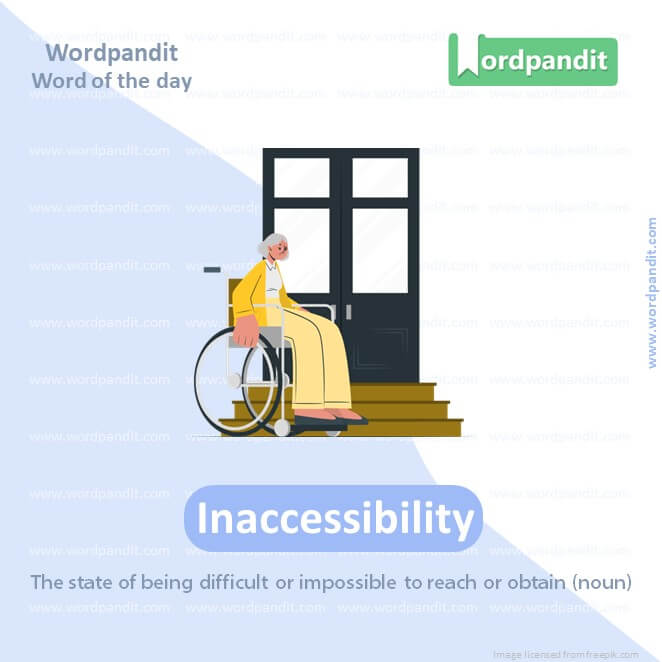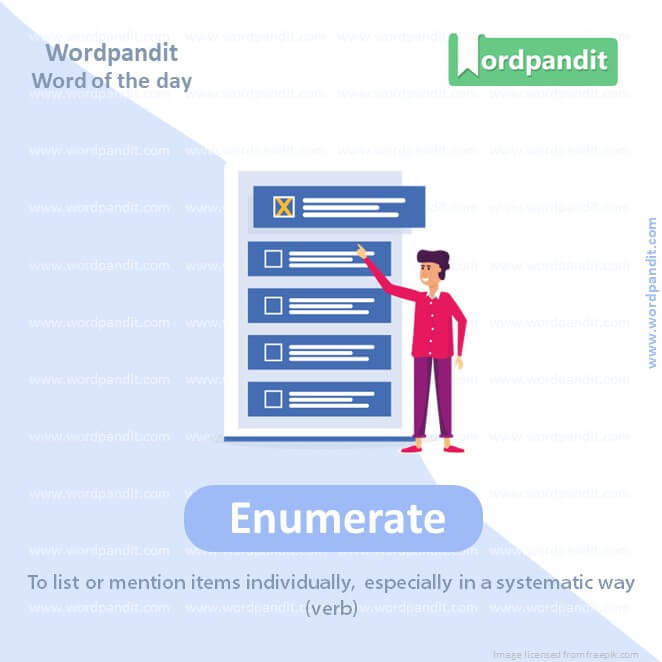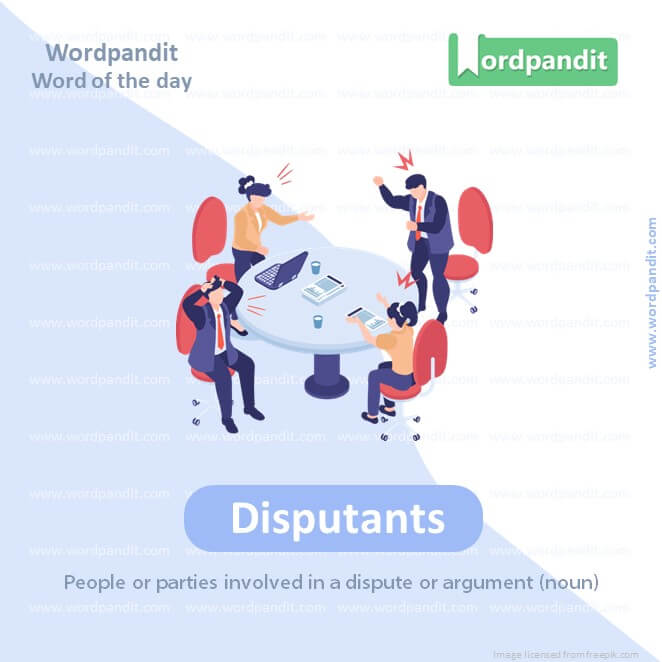Daily Vocabulary Words: List of Daily Used Words
Hi there. Welcome to this special section @ Wordpandit.
Our endeavour here is straightforward: highlighting important daily vocabulary words, you would encounter in The Hindu. This is your repository of commonly used words; essentially, we are posting a list of daily used words. Hence, this has significant practical application as it teaches you words that are commonly used in a leading publication such as The Hindu.
Visit the website daily to learn words from The Hindu.

WORD-1: Bettered
CONTEXT: The Congress bettered its vote share by 14 percentage points from the 2018 Assembly elections, while the BRS declined by a similar margin from a dominant 47%.
SOURCE: The Hindu
EXPLANATORY PARAGRAPH: When you make something even nicer or improve it, like adding more toppings to your ice cream, it’s called “bettered.”
MEANING: Improved or made something better (verb).
PRONUNCIATION: BET-erd
SYNONYMS: Improved, enhanced, upgraded, ameliorated, refined, perfected, polished
USAGE EXAMPLE:
1. She bettered her grades by studying harder.
2. The chef bettered the recipe by adding more spices.
3. His health gradually bettered after taking the medication.
4. The new edition of the book was bettered with additional illustrations.

WORD-2: Inaccessibility
CONTEXT: The building has also been renamed Jyothirao Phule Praja Bhavan to counter the perception of inaccessibility and social exclusion.
SOURCE: The Hindu
EXPLANATORY PARAGRAPH: When something is very hard or impossible to reach or use, like a toy stuck on a high shelf, it’s said to have “inaccessibility.”
MEANING: The state of being difficult or impossible to reach or obtain (noun).
PRONUNCIATION: in-ak-SES-uh-BIL-uh-tee
SYNONYMS: Unreachability, remoteness, unavailability, difficulty, inapproachability
USAGE EXAMPLES:
1. The inaccessibility of the mountain peak makes it a challenging climb.
2. The castle’s inaccessibility made it a secure fortress.
3. The website’s inaccessibility due to maintenance frustrated many users.
4. The treasure’s inaccessibility deep in the jungle made it legendary.

WORD-3: Concessionaire
CONTEXT: The Supreme Court of India has used its extraordinary powers to set aside its own judgment of 2021 and relieve the Delhi Metro Rail Corporation (DMRC) of an exorbitant burden of ₹7,687 crore in a dispute with a former concessionaire.
SOURCE: The Hindu
EXPLANATORY PARAGRAPH: A concessionaire is like the person at the amusement park who sells tickets for rides and snacks.
MEANING: Someone who operates a concession, such as selling goods or services in a designated area (noun).
PRONUNCIATION: kun-SESH-uh-NAIR
SYNONYMS: Vendor, seller, merchant, trader, retailer
USAGE EXAMPLES:
1. The concessionaire at the beach sold refreshments and beach equipment.
2. The stadium concessionaire offered a variety of snacks during the game.
3. The mall has many concessionaires selling different products.
4. The fairgrounds had several concessionaires selling games and treats.
WORD-4: Invoked
CONTEXT: DAMEPL had invoked the termination clause in its agreement in October 2012, citing the DMRC’s alleged failure to cure some defects.
SOURCE: The Hindu
EXPLANATORY PARAGRAPH: When you call upon someone or something for help or support, like asking a superhero for help, you “invoke” them.
MEANING: Called upon or summoned, especially for support or assistance (verb).
PRONUNCIATION: in-VOHKD
SYNONYMS: Summoned, called forth, elicited, appealed to, evoked
USAGE EXAMPLES:
1. She invoked the spirit of perseverance to finish her project.
2. The lawyer invoked legal precedent to support her argument.
3. The singer’s performance invoked strong emotions in the audience.
4. The ancient ritual invoked the blessings of the gods.
WORD-5: Perversity
CONTEXT: On appeal, a single judge of the Delhi High Court upheld the arbitration award against DMRC, but a Division Bench set it aside, holding that the award suffered from perversity and patent illegality.
SOURCE: The Hindu
EXPLANATORY PARAGRAPH: When someone does the opposite of what’s expected or reasonable, like wearing a winter coat in summer, it’s called “perversity.”
MEANING: The quality of being contrary, stubborn, or intentionally unreasonable (noun).
PRONUNCIATION: per-VER-si-tee
SYNONYMS: Stubbornness, contrariness, obstinacy, wilfulness, defiance
USAGE EXAMPLES:
1. His perversity in always choosing the difficult path frustrated his friends.
2. The cat’s perversity showed in its refusal to eat anything except fish.
3. The employee’s perversity led to conflicts with colleagues over minor issues.
4. The artist’s perversity in using unconventional materials challenged traditional art norms.
WORD-6: Reversing
CONTEXT: A two-judge Bench of the Supreme Court restored the award, reversing the High Court Bench’s findings in favour of the DMRC. A review petition was also rejected.
SOURCE: The Hindu
EXPLANATORY PARAGRAPH: When you go backward, like when a car moves backward, it’s called “reversing.”
MEANING: The act of moving backward or changing to an opposite direction or condition (verb).
PRONUNCIATION: ri-VUR-sing
SYNONYMS: Backing up, going backward, turning back, retracting, flipping
USAGE EXAMPLES:
1. The driver practiced reversing into tight parking spaces.
2. The company is reversing its decision due to public outcry.
3. The river’s current made reversing the boat difficult.
4. She’s good at reversing misunderstandings with clear explanations.

WORD-7: Enumerate
CONTEXT: There are only two main grounds for entertaining such a petition: to prevent abuse of process and to prevent gross miscarriage of justice, although it is not possible to enumerate all the circumstances that warrant it.
SOURCE: The Hindu
EXPLANATORY PARAGRAPH: When you make a list of things, like counting your toys or naming all the colors, it’s called “enumerating.”
MEANING: To list or mention items individually, especially in a systematic way (verb).
PRONUNCIATION: ih-NOO-muh-rayt
SYNONYMS: List, count, itemize, detail, specify, tally, reckon
USAGE EXAMPLES:
1. The teacher asked the students to enumerate the different types of animals.
2. The report will enumerate the expenses incurred during the project.
3. Can you enumerate the reasons why you want to go on this trip?
4. The catalog enumerates all available products in the store.
WORD-8: Curative
CONTEXT: It is normally inexpedient for arbitration issues to have many levels of litigation — in this case there was a statutory appeal to the High Court, and appeals to a Bench, the apex Court, a review petition and a curative petition.
SOURCE: The Hindu
EXPLANATORY PARAGRAPH: When something makes you feel better when you’re sick, like medicine or a warm blanket, it’s called “curative.”
MEANING: Having the ability to cure or heal (adjective).
PRONUNCIATION: KYOO-ruh-tiv
SYNONYMS: Healing, medicinal, therapeutic, remedial, restorative, alleviating, remedying
USAGE EXAMPLES:
1. The doctor prescribed curative treatment for the patient’s infection.
2. Rest and relaxation can have curative effects on stress.
3. The curative properties of herbal remedies are well-known.
4. The curative powers of nature are often underestimated.

WORD-9: Disputants
CONTEXT: The outcome only underscores the importance of arbitrators and judges sitting on appeal over awards getting both fact and law right, lest commercial litigants be discouraged from arbitration due to the constant stretching of the idea of finality. Not all disputants can go up to the level of a curative petition.
SOURCE: The Hindu
EXPLANATORY PARAGRAPH: When people argue or disagree about something, like which game to play or whose turn it is, they are called “disputants.”
MEANING: People or parties involved in a dispute or argument (noun).
PRONUNCIATION: dis-PYOO-tuhnts
SYNONYMS: Arguers, adversaries, opponents, contenders, rivals, contestants, litigants
USAGE EXAMPLES:
1. The mediator tried to bring peace between the disputants.
2. The court will hear from both disputants before making a decision.
3. The disputants couldn’t agree on a fair resolution.
4. Disputants often have different perspectives that lead to disagreements.
WORD-10: Conflated
CONTEXT: There is no adverse impact on domestic politics, and if possible, even gain them some votes. However, rarely do general elections get conflated with foreign policy issues as the upcoming elections in India seem to have become.
SOURCE: The Hindu
EXPLANATORY PARAGRAPH: When two things get mixed up or combined, like if you mix up two different games into one, it’s called “conflated.”
MEANING: Combined or mixed together, especially ideas or concepts (adjective).
PRONUNCIATION: kun-FLEY-ted
SYNONYMS: Blended, merged, fused, amalgamated, integrated, united, synthesized
USAGE EXAMPLES:
1. The report conflated several research studies to draw conclusions.
2. His speech conflated history with mythology, confusing the audience.
3. The artist’s style often conflates realism with abstraction.
4. The media often conflates opinions with facts, leading to confusion.
Vocabulary Pronunciation
The dance of language learning comprises two inseparable partners: vocabulary and pronunciation. The rhythm of this dance is best enjoyed when both partners are in sync. Essentially, mastering ‘vocabulary pronunciation’ is key to expressing and understanding a language effectively. However, what is the ideal approach to learn ‘vocabulary pronunciation’?
Firstly, the process of learning ‘vocabulary pronunciation’ isn’t a sprint. Rather, it’s a marathon where consistency is vital. A gradual and steady pace of learning new words and their pronunciation offers enough time to effectively practice and commit them to memory.
Secondly, to master ‘vocabulary pronunciation’, go beyond written text. Dwell in the world of audible language, such as documentaries, podcasts, music, or language-learning apps that provide pronunciation guides. These memorable auditory experiences aid in refining your ‘vocabulary pronunciation’ and offer a glimpse into the authentic sounds of the language.
Another beneficial strategy for learning ‘vocabulary pronunciation’ involves the use of phonetic transcriptions. They offer systematic approaches to understanding the sound system of a language, thereby improving pronunciation.
Most importantly, do not shy away from practicing your ‘vocabulary pronunciation’. Be it in a language exchange meeting, a conversation with a native speaker, or even a self-recording session, active verbalization massively boosts your pronunciation prowess.
Lastly, always remember to train your ears as much as you train your tongue. Listening carefully to native speakers helps you capture the subtleties of ‘vocabulary pronunciation’, contributing to better delivery when you speak.
In conclusion, mastering ‘vocabulary pronunciation’ is not an overnight journey. It’s a process of intentional practice, sustained listening, conscientious reflection and active usage. As you chart this course with diligence and patience, you will witness your ‘vocabulary pronunciation’ skills blossom, leading you to communicate with greater fluency and confidence.













